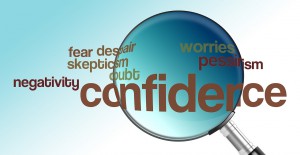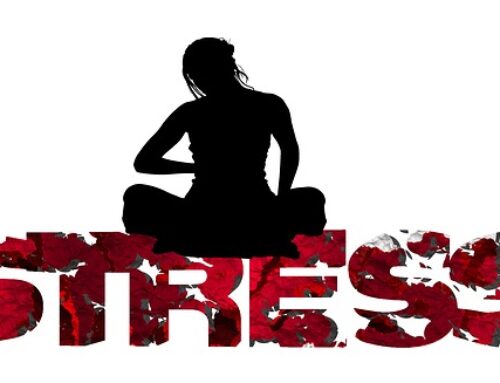
And what happened when the rage of madness subsides? Those urge of retaliation, just evaporated, leaving trails of guilt, shame, a hollow feeling of sadness, and probably a broken friendship beyond repair.
Giving in to anger is giving up control
Anger is just like the eruption of the volcano itself, often uncontrollable once unleashed, leaving trails of destruction to families, spouses, friends, and acquaintance alike.
What causes us to change from peaceful and rational to be consumed by anger in such a short moment? If we are to trace the trail of our thought, it often leads to the one small word that is too big for our own good: EGO.
We humans don’t take it kindly when someone trampled our ego. We need to feel accepted, agreed with and have our ego constantly stroked. A direct hit on our ego is sure to rouse the familiar flame of anger in us despite the teaching that we should accept the criticism, to reflect our flaws and to improvise from that.
We are told to learn even from those who showed disrespect to us, as they are the examples of who we should not be. Of course, it is easier said than done. For the average person, it takes just a tiny fooling around with their bloated self-pride to get them agitated.
Suppressing anger only delays the impending explosion
When we let anger took control of us, we are giving up control of our dignity, our rational mind and we are stepping down to a level of lower intelligence, where our speech and action often caused irreversible damage to the situation. Most of us realized the importance to manage our anger, for the guilt that besets us aftermath is too heavy to bear and the price to pay for letting slip of control is too high to pay.
We would try to suppress our anger, just like putting a lid on a boiling kettle. It does work initially, but some may find that the pent-up emotion accumulates and starts turning into resentment or other negative thoughts the affects us gradually.
What really happens here is we are just suppressing the anger energy instead of managing it without any residual effect. And as more frustration builds up under the lid, it is only time when we are being pushed over the edge again, only this time, the outburst will be greater and so does the collateral damage.
If suppression doesn’t work, then what does?
I wish I could share a way that could totally remove anger from our system. Well, I do not know of such a way, and maybe as long as we are alive as a human being, anger will be a part of us. What I can share is a guided step, that through practice, can reduce the chances of outbursts, and yet it doesn’t cause any pent-up feeling of frustration or hatred within us.
Here’s what works for me (It takes practice, and it takes a longer time than you thought to master it):
1.Be Aware Of Your Emotion – when anger surges. There is often a small time window before our emotion takes full control and we started shouting words we are bound to regret. Identify and familiarise the change in your mental state when anger starts to build. This definitely takes some constant mindfulness practice to develop.
2. Suppression – But only for a moment. We are suppressing our anger to prevent any untoward speech and action that we will live to regret. But we are not doing this for long, as we are preparing to move into the next stage.
3. Turn our mind inward – We have noted that we are getting angry, and we have managed to put a lid on the boiling rage. Now we will disengage and turn our mind inwards. Focussing on the “Why” now would not lead us to any peace of mind. Focus on the feeling of anger itself instead of being angry. Observe how it stretch and twist our mind, how it burn our heart. Even be slightly fascinated with it, as if we are learning something valuable from us.
As the rage subsides
Anger, like other emotion, does not stay for long, unless we fed it with energy. Which is why turning our mind inward is the key point in letting the anger fades. When the rational part of us regained control, then it is time to ask the “Why”.
Seeking the reason for our anger now will often reveal interesting and unexpected answers. And it often amazes me that in the end, it has little or nothing to do with others but everything to do with our insecurities, ego, self-pride, assumptions, and expectation. And when we are to able to see this clearly, then our self-improvement can truly start.
What have your bouts of anger cost you?






This is some fantastic information about taming your anger. You are 100% right there, suppressing it just delays the impending explosion. It can definitely be hard to overcome and not loose your cool and all control. I know when I was a younger kid I had some anger issues myself and didn’t always cope with it in the best way. Now being older I just try to keep my anger at bay by trying not to sweat over the little things, everything can change in the blink of an eye so why be angry or upset at something that doesn’t matter. I’ve had a relationship fall apart because of letting anger get the best of me, it doesn’t do so well for having a filter when yelling or talking. Thanks for sharing this information.
Chris,
I appreciate you being open about your anger issue. I do experience anger and more sinister and dark emotion before I learned to condition my mind. The things that we did in the short moment where anger clouds our eye often cause regret that eats into us.
Insightful post. Anger is sometimes difficult to control but the techniques you have outlined will really help. I like the Eleanor Roosevelt quote that no-one can make you feel inferior without your consent – the same applies to anger and feeling angry, too.
Hi Sarah,
As with many methods that are more effective, they need time, practice and patience to let it work. But the reward where we are able to smile instead of being angry is priceless.
What an informative post. I am glad I came along your post since I have been trying to find information about this topic for a while now. I have a friend who as a hard time controlling anger and it’s mostly due of him holding tings inside and not letting them out. I would send him to your webpage..
Hi Juan,
I hope this sharing would help your friend well, do let me know if your friend need any further advice.
I have another way that will reduce my temper. Can I pass my son over to you?
Obviously I’m kidding but the major arguments that come from my household are because of the anger my 8 year old has in him. Obviously he got it from his mother!;)
OK, maybe it came from me. It’s certainly a hereditary thing.
He seems to be getting better but it’s hard to talk sense to an 8 year old about managing his anger.
Hi Nigel,
It definitely is hard talking sense to a child on managing his anger. But we definitely have a choice as adults. I have a 4 year old kid myself. It is definitely good practice for us to quell our burning fire, or to channel the energy to something postive.
Hi Kennylee,
Great site I don’t know anyone who doesn’t suffer from anger from time to time, I myself struggle and yes the more I hold on to it and think about it the more in raged I become, I’m learning to let go or exercise when I feel this way and it helps me tremendously the best thing is to just let go nothing is worth it.
Tara,
Truly agree. Letting go is the best thing. And yet the hardest thing to do. It is counter-intuitive to our natural reaction which is to hold on and fuel the anger. Glad that you’ve managed to handle it well.
Kenny,
This is all too familiar, if I had read this post a few months back I may still be with the woman I love.
Understanding is half way point to controlling and gaining control.
I hope this helps others, but sadly it’s too late for me.
Carl,
I’m sorry to hear about your situation. Sad but true, when we let anger take over, we do things we are bound to regret. Wish you strength on your way forward.
Your post regarding anger is insightful. In dealing with anger, I think I can handle steps 1 and 2. When it comes to step 3 you suggest, “Focus on the feeling of anger itself instead of being angry. “I’m not sure I know how to do that or even what it means. I wish I did, because it would help. Thanks for your post.
Hi Jeff,
Step 3 is more profound. I will take a football game as an example. If we are the player in the game, we are consumed by the excitement and our action are defined by the situation and the emotion. But if we can removed ourself from the game and be the spectator instead, we still see the game but from another perspective. Instead of being consumed with anger that could force us to react, how about try looking at anger as it is something fascinating like a display. This is a profound concept and yet is achievable with enough practice.
Hi Kenny Lee
Fortunately, my anger has not cost me dearly to date.
You article, although a simple one, deals with a very complex issue: anger.
Thanks for acknowledging that there is no easy solution to dealing with our anger but to try our best.
And how easily our egos get bruised.
Lovely article.
Regards
Peteni
Hi Peteni,
Thanks for checking out my article and I’m happy that you are handling this complex emotion well.
Cheers,
Kenny
Anger is an emotion that is quite hard to catch compared to others because it comes along so suddenly. Anxiety can be more easily noticed because its energy isn’t as strong. I love your content here Kenny, becoming aware of the emotion is a great point and accepting it can help. Forgiving yourself and accepting it happens sometimes. 🙂
Hi Josh,
Thanks for loving what I’ve shared.
Cheers,
Kenny